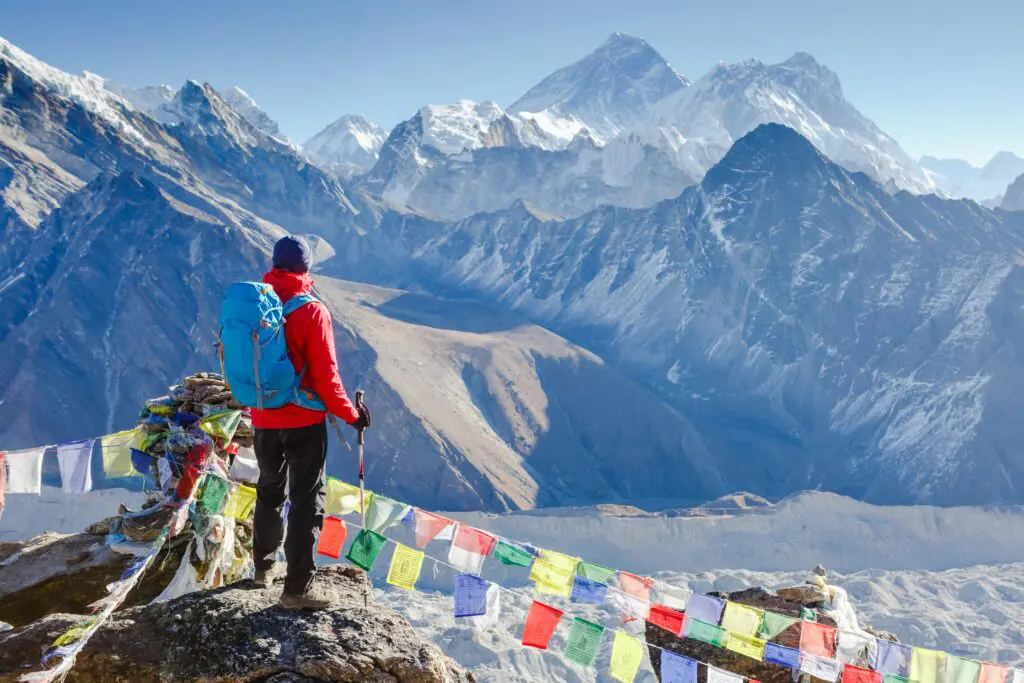If there’s one thing I appreciate at conferences it’s hearing a unique take that inspires new business ideas. Take Benedikt Böhm, a German adventurer who in 2019 set a world record by climbing one of the mountain peaks in the Himalayas in under 14 hours.
Böhm gave the keynote address at the recent annual bvse paper recycling conference in Berlin. There, he dazzled the audience with video logs from his ascent and descent. ‘We are at the top of the mountain, which stands at over 7 000 metres, with temperatures at minus 25 degrees. There is only about 20% oxygen at this altitude.’
Böhm’s crew decided to do something unusual: to undertake the expedition without using an oxygen supply. ‘We’re very experienced climbers,’ he said. ‘We wanted to do this relying purely on our own energy and willpower.’ To date, only 380 people out of more than 10 000 have ascended without an oxygen tank. ‘In some cases, using tools meant to keep you safe can actually prove fatal. Several climbers died up there because they were stressed out and didn’t change the tank quickly enough.’
To be successful, Böhm and his crew knew they had to rely on teamwork and speed to stay safe – and alive. ‘It’s best not to be up there any longer than you need to be. That’s why decided to reduce complexity before starting our mission. Our goal: to declutter. We carefully examined our outfit, gear, shoes – down to every last strap – and left out what we didn’t need.’
Böhm reasons: ‘In life, you can’t take everything with you. But it’s in our nature to collect things. Did you know that the average German consumer has between 25 000 and 30 000 items in their home? We had to fight this attitude by asking ourselves: “What is essential? What is merely important? And what is trivial?”’
The ‘art of leaving things out’ allowed them to be the lightest climbing team to ever make their way up a Himalayan peak, while cutting their ascent time by a third. ‘I was wearing just 6.8kg of clothing and gear. We mapped out ahead of our expedition which items we would leave behind at the camps along the way, of which there are four.’
Böhm recalls how he drank nine litres of water before leaving on the trip because he only carried 350ml with him. ‘Succeeding is about setting the right priorities. You can’t control the outcome, but you can control your preparation. I think that’s what determines 80% of your success. The remaining 20% is down to your flexibility in the moment.’
An integral part of this is acknowledging whether the conditions are still good at crucial junctures. ‘If they are not, you have to turn around. I previously saw this as a failure but not anymore. Turning around is always an option. It should be. Sometimes this is the best way forward. Nothing is worth your life, right?’
Böhm first realised this when he aborted an ascent of a famous mountain in Pakistan after months of dedicated training. ‘Ahead of our expedition, we pledged to turn around after 80 hours, no matter where we were… We were so close. I could see the summit, only 20 metres away. I could almost touch it! It hurt our hearts to stop. But we’d promised to prioritise safety over anything else. It was the right call. Two people tried to keep going. One never came back and the other came back more dead than alive.’
Böhm adds: ‘The higher you climb, the more you have to leave your ego behind. You realise “I’d better be humble, respect the rules of things that are bigger than me – like nature.” Whether you’re an adventurer or a recycler, I believe we all agree it’s not wise to play God.’
He ended his speech by pointing out that the unknown and the possibility of danger convert into fear. ‘If you can learn to prepare for this fear, you don’t have to let it hold you back. Remember, most of the time, we fear something that could be coming later rather than something that’s actually right in front of us. I hope we can all find the balance between fear and courage to lead us to a new path.’
Don't hesitate to contact us to share your input and ideas. Subscribe to the magazine or (free) newsletter.



